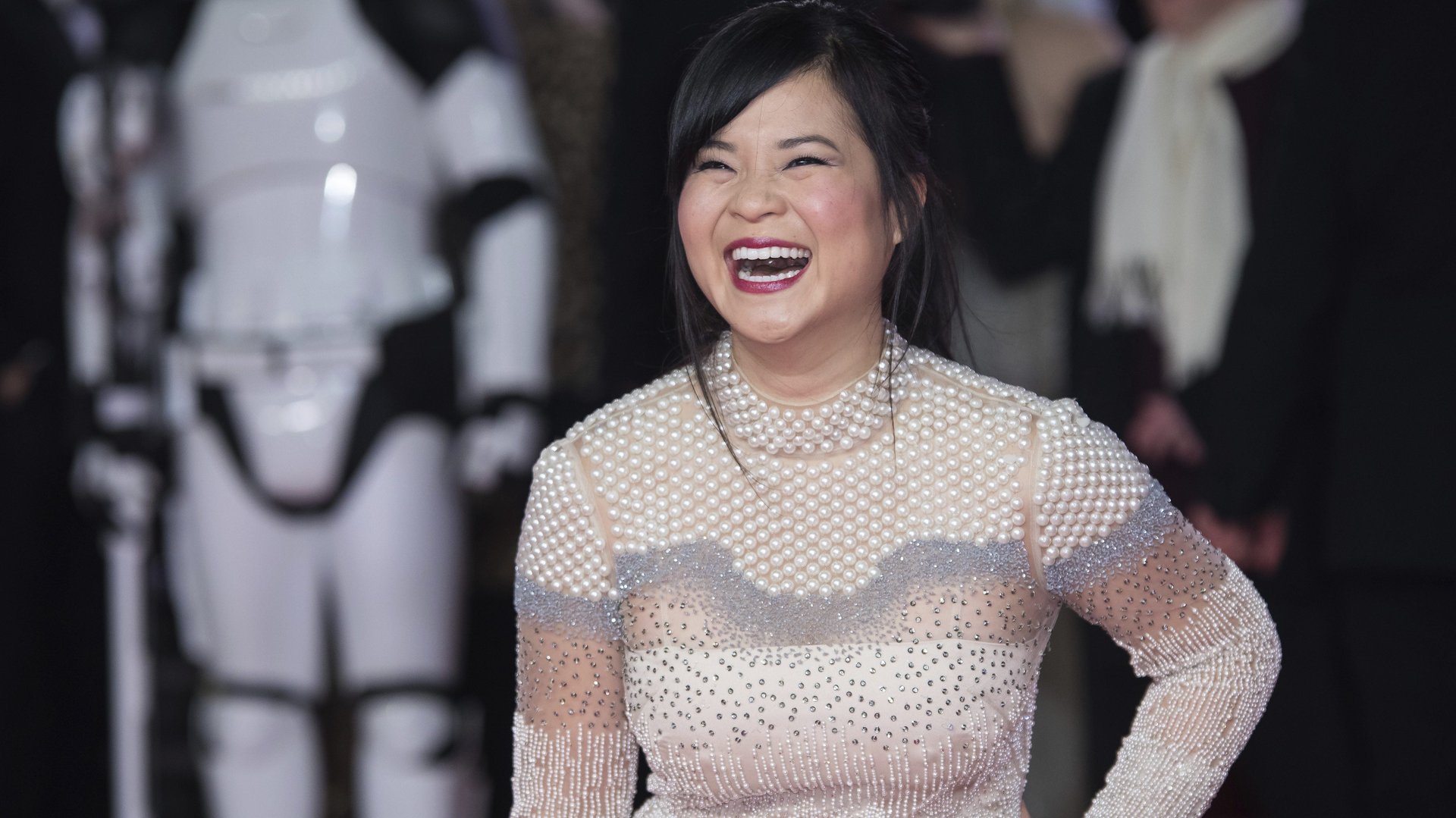The victory of a major Asian-American character in “The Last Jedi” shows how far we still have to go
Kelly Marie Tran’s big break in Star Wars: The Last Jedi, has seemingly done the impossible—or at least the improbable: firmly positioned an Asian-American actor as a bona fide international cultural sensation. Fans adore Tran’s portrayal of the underrated mechanic Rose Tico, and even more so, her real life unassuming and bubbly charm.


Kelly Marie Tran’s big break in Star Wars: The Last Jedi, has seemingly done the impossible—or at least the improbable: firmly positioned an Asian-American actor as a bona fide international cultural sensation. Fans adore Tran’s portrayal of the underrated mechanic Rose Tico, and even more so, her real life unassuming and bubbly charm.
On the night of the film’s European premiere, the Twittersphere exploded with unabashed love for its newfound hero. Tran has accomplished what few, if any, other Asian-American actors have done: be wholeheartedly embraced by not just the Asian-American community but by mainstream national and international pop culture.
Tran’s rapid rise to stardom is just as much tied to her endearing personality as it is to the character she portrays. Tran is, as many media outlets have noted, the first Asian-American woman to have a major role in Star Wars. But her role holds major significance far beyond the confines of the beloved film series.
In an industry that has long ignored Asian-American actors and narratives, shamelessly whitewashed Asian characters, and perpetuated outdated stereotypes, Tran’s character refreshingly breaks free from all of the typical cliches. She is neither a socially incompetent foreigner (Rajesh in Big Bang Theory) nor a cut-throat model minority (Cristina Yang in Grey’s Anatomy); neither a sexually submissive geisha (the Asian robot in Ex Machina) nor a high-powered sex symbol (Lucy Liu in Charlie’s Angels).
Put plainly, there is no apparent reason for Rose to be portrayed by an Asian actor. (In fact, Tran told Rolling Stone that the role had been slotted for “any ethnicity.”) She belongs in the Resistance as an unabashed equal and evolves in a way that has nothing to do with her ethnicity—emerging from a little known corner of its ship to become one of the central heroes in the story.
Rose’s critical role and her sense of belonging are a major victory for Asian-Americans. The fact that this victory occurs on a platform as massive as Star Wars only increases Tran’s impact on mainstream perception.
But our work is not done. For one thing, Tran’s addition to the Star Wars universe has already provoked a backlash, namely racist attacks. On Dec. 19, a user on Wookieepedia—a fan-run Wikipedia for Star Wars—edited Rose’s character page to add a slew of racial slurs, including changing her name to ”Ching Chong Wing Tong” and her homeworld (Hays Minor) to “Ching Chong China.” Beyond its sheer offense, the incident makes clear just how far the presence of Asian actors (and characters) still has to go.
Admirers must also admit that Rose is only one character and Tran, just one actress. Though their rise is certainly cause for celebration, they also shed light on just how little representation Hollywood has afforded Asian-Americans.
So my celebration is subdued, and I demand more. I await a world in which Asian-American narratives and actors would no longer be a surprise and instead a norm. One where the star of Lady Bird could have just as easily been Asian-American, where Emma Stone could have an Asian lover instead of Ryan Gosling in La La Land, and where the Asian X-Men in the comics would finally be brought to the silver screen.
Until then, Rose and Tran have made a powerful mark in the journey to reclaim the Asian-American story. The Last Jedi will be widely watched by Star Wars fans across generations and brings Asian-Americans one step closer to being recognized as part of the fabric of American society.